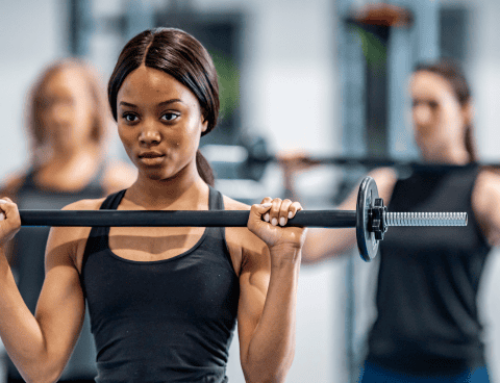Mental Toughness Begins with Self-Awareness
Self-awareness is the starting point for change and growth. As an athlete, if you lack self-awareness, it’s practically impossible for you to be mentally tough. And that can be an issue for your game.
Mental toughness is the cornerstone of athletic success. Just look at the definition in sport psychology. Mental toughness means being resilient, fully prepared to deal with any situation, trusting your ability and possessing the mental skills you need to perform at your best. The better you know yourself as an athlete and the more you learn from each performance, the easier mental toughness becomes. Here are some ways to build your self-awareness as an athlete.
Keep a Performance Log
A performance log is an excellent way to document your total experience as an athlete. Keep track of everything—nutrition, sleep patterns, physical training, even how you feel after a hard workout. You can easily create a personal performance log by thinking about all the components that contribute to your peak performance and tracking them routinely. Over time you will be able to look at your performance log and see patterns and common factors that influence your game. Even the most experienced athletes can learn something new about who they are and what they need to work on. (More reasons why performance logs are important.)
Video Tape Your Performance
Watching yourself perform can be extremely helpful. Sometimes you may not agree with or even understand the feedback you get from your coaches. Watching yourself on video gives you an opportunity to learn and grow. It’s also useful to pick up on the unconscious messages you are sending to teammates and opponents with your body language. (Read more on what your body language reveals.) Ask a friend or family member to record some or all of your games so that you can objectively analyze your actions on the field or court. Then, set some SMART Goals around making improvements.
Consult With a Sport Psychology Professional
The foundation of applied sport psychology is athlete awareness. A trained professional, with a Masters or a Ph.D. degree, will be able to ask the right questions to build your self-awareness. Meeting with a sport psychology professional will teach, support and challenge you to grow as an individual in a positive, nonjudgmental environment.
RECOMMENDED FOR YOU
MOST POPULAR
Mental Toughness Begins with Self-Awareness
Self-awareness is the starting point for change and growth. As an athlete, if you lack self-awareness, it’s practically impossible for you to be mentally tough. And that can be an issue for your game.
Mental toughness is the cornerstone of athletic success. Just look at the definition in sport psychology. Mental toughness means being resilient, fully prepared to deal with any situation, trusting your ability and possessing the mental skills you need to perform at your best. The better you know yourself as an athlete and the more you learn from each performance, the easier mental toughness becomes. Here are some ways to build your self-awareness as an athlete.
Keep a Performance Log
A performance log is an excellent way to document your total experience as an athlete. Keep track of everything—nutrition, sleep patterns, physical training, even how you feel after a hard workout. You can easily create a personal performance log by thinking about all the components that contribute to your peak performance and tracking them routinely. Over time you will be able to look at your performance log and see patterns and common factors that influence your game. Even the most experienced athletes can learn something new about who they are and what they need to work on. (More reasons why performance logs are important.)
Video Tape Your Performance
Watching yourself perform can be extremely helpful. Sometimes you may not agree with or even understand the feedback you get from your coaches. Watching yourself on video gives you an opportunity to learn and grow. It’s also useful to pick up on the unconscious messages you are sending to teammates and opponents with your body language. (Read more on what your body language reveals.) Ask a friend or family member to record some or all of your games so that you can objectively analyze your actions on the field or court. Then, set some SMART Goals around making improvements.
Consult With a Sport Psychology Professional
The foundation of applied sport psychology is athlete awareness. A trained professional, with a Masters or a Ph.D. degree, will be able to ask the right questions to build your self-awareness. Meeting with a sport psychology professional will teach, support and challenge you to grow as an individual in a positive, nonjudgmental environment.













